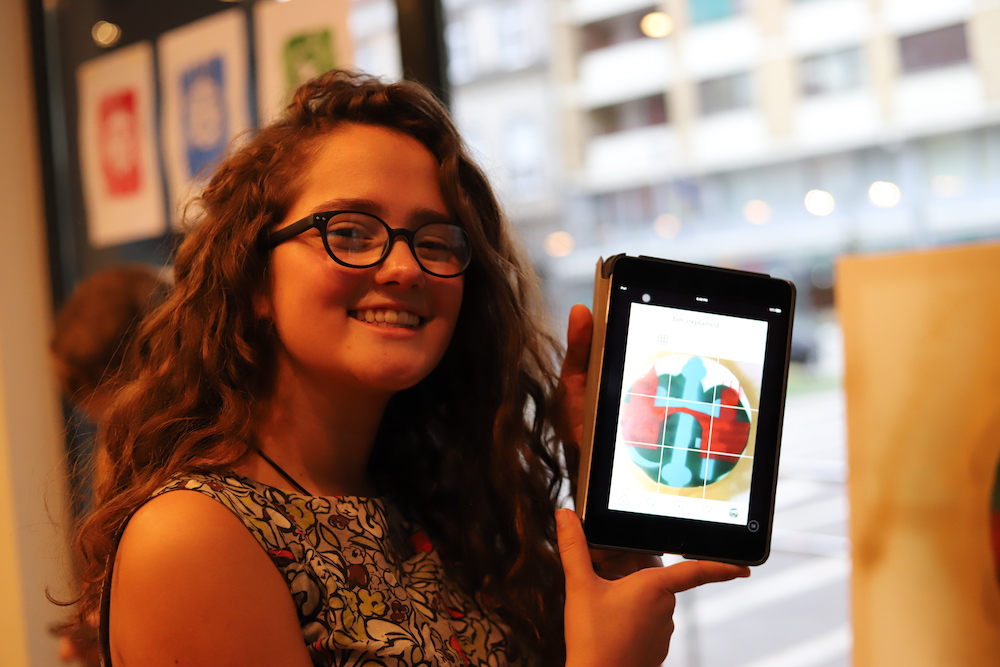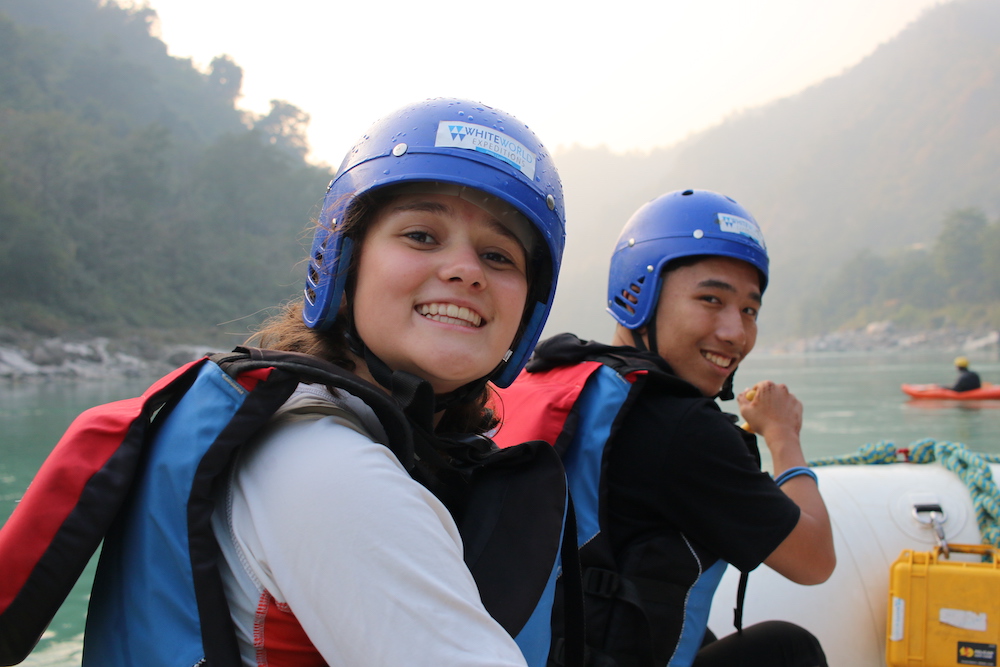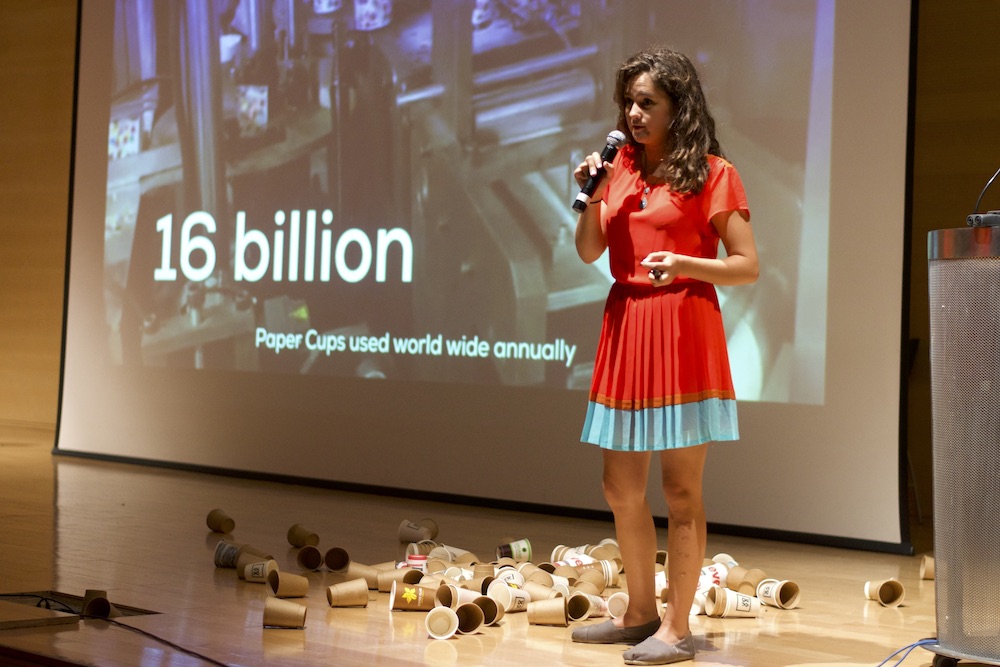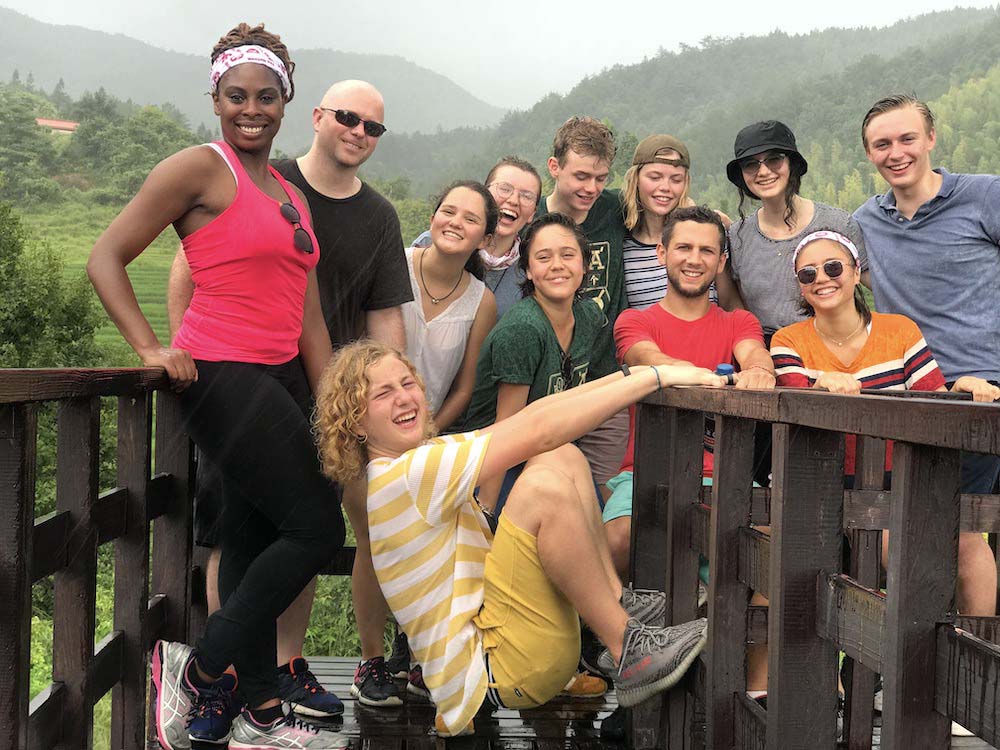1) Hi Nada, can you tell us what you've been up to since graduating from THINK Global School in 2022? Since graduating in 2022, I've been pursuing a passion I found while at TGS, sustainability, and I am currently majoring in engineering in renewable energy systems at Al Akhawayn University, in Ifrane, Morocco. But there is way more than that! I've had a chance also to explore the world of...
Read MoreHi Paula, tell us more about yourself – What’s your age, home country, how long you’ve been at TGS, your interests, and school clubs you’ve joined.
Hi, I’m Paula Marquina Gurrea from Querétaro, México. I’m 18 years old, currently in the middle of my senior year, and I joined THINK Global School in July 2017.
We are all passionate and unique individuals who are seeking to learn the most from our experiences and the challenges we face. I’m personally interested in a variety of subjects, the most recurrent ones being related to sustainability, marine science, psychology, anthropology, social connection, conflict resolution, and community building.
Most of the things we do at THINK Global School are related to the projects we work on, but there are a few separate school clubs. Some of the ones I’ve joined are volleyball, art club, LGBTQ+ allies, telenovela club, writing/poetry club, and science lab club.
How would you describe life at TGS? In your opinion, how is a traveling school like THINK Global School better than conventional high schools?
It is a passionate lifestyle. You care about your projects, your learning, and your family — both at home and in the school community. You learn to be passionate about life. Feeling the highs and lows, your own and your friends, and knowing that every single day you will learn something new. It’s a very different life and it’s quite hard to explain but TGS is just one big family that embraces curiosity, always tries its best, acknowledges its mistakes and grows from them, and continuously challenges you to become a better version of yourself. It’s personal, supportive and very open.

Paula shows her project work in Bosnia and Herzegovina
The school has more than lived up to my expectations. I knew it was going to be a completely different experience filled with lifelong friendships and memories; however, I never imagined how much I’d learn from everyday comments, actions, and friends who have become a family and some of the most important and inspiring people in my life.
What have been the highlights of your TGS experience, both academically and non-academically?
Through TGS I’ve been lucky to have had quite a few experiences that shaped my perspective of the world, academically and non-academically. Most of my favorite moments are simple everyday activities, like walking around a big city or a small town and talking with my best friends about the issues we are all interested in, just laughing and catching up while realizing how my new “normal life” is actually very special. I have conversations with people from all around the world and regularly forget that we come from completely different backgrounds. I feel very fortunate that I can enjoy the experience of building incredible memories through the big moments we share as a community, but also through our everyday actions and supportive nature.
Academically, one of the most memorable moments I’ve had at THINK Global School was my first personal project back in India (which was my second country at TGS). Looking back, it definitely wasn’t my best project, but it taught me plenty of things!
The project was about sarees — complex traditional clothing for women in India. The idea was for me to research and interview women around the city about why they continued to wear traditional clothing, what it means to them, what are the different styles and so on. Ideally, it would have all come together during our end-of-term showcase in the form of a fashion show; however, I am not a fashionable person and did not realize how meaningful sarees are and how much I had to learn from them. In summary, sarees can tell you a lot about the person who is wearing them: their age, region, beliefs, relationship status, etc.

Paula and Kien on weXplore during their term in India
As I researched sarees, I kept coming across the phrase “feeling of empowerment,” something I hadn’t heard before and didn’t fully understand until the night before my presentation when I decided to try a saree on for myself. I had no clue how challenging wearing one would be, and after hours of trying to get it right through help from some YouTube videos, I decided to take a look in the mirror. I understood then the meaning of “feeling of empowerment.”
It was not because it looked great (believe me, it didn’t). it was simply knowing how much effort I put into getting the saree right, the way it made me stand tall with my head high and proud. It was something so strange and new I simply laughed and had a newfound appreciation for women who can wear something so complicated and gorgeous every day.
My fashion show turned into a presentation and nothing went as planned. I did not have the sarees I needed, the help I had asked for from the locals didn’t make it, and I was frustrated and crying before going on stage. Thanks to a friend, though, I got a few women who were wandering around the street to come in and help. It all built up to that moment on stage: I had three pages of speech ready to go, but something still didn’t feel right. I got on the stage wearing a saree alongside three of my peers who were modeling them. Feeling empowered, I put my speech down and explained everything I had learned to the audience, laughing at my experience and explaining how little things like an “outfit” or simple piece of clothing is so underappreciated as it can teach us so much about a person, a country, the country’s history and ourselves.
What have been the biggest challenges you have faced, both academically and non-academically? How did you overcome them?
Besides getting used to guiding my own learning and being more responsible for my education than at my previous school, experiencing failure during projects along with the disappointment that stems from that failure has shaped me the most (failure and reflection play large roles in project-based learning). As a community, we talk about our project failures often and tell ourselves that we can overcome them. That in the end, we are learning more when we fail. All of this is true, but it doesn’t make it hurt any less during the process of failure.
From that first time I grew frustrated due to my own high expectations and setting unattainable goals to the time I confronted my project mentors when I was hurt by their feedback — I have come to understand and truly believe that there is no way you can “lose” when you fail. In these emotional learning situations where failure leads to success, you only have things to gain. How you choose to react to difficult situations and channel your energy — that’s the important takeaway. Dealing with failure is never easy and it’s probably the most consistent lesson I’ve had in every place I’ve lived and through all the experiences of my life. I still struggle with failure, but now I have a safe and supportive environment to help manage these situations, and that’s helped me find myself, reflect on my failures, and continue on to my next challenge. I think the key is getting comfortable with being constantly uncomfortable and learning how to deal with failure.
Can you share your thoughts on the Changemaker Curriculum? What are the top three skills you’ve mastered? Do you think these will benefit you in the short and long-run?
As time goes by and I start to see my graduation approaching at THINK Global School, I can better understand what the Changemaker Curriculum is trying to do and how it’s changed me and those around me for the better. I really think that with the right environment, leadership, and support, anyone can succeed by learning through the Changemaker Curriculum. The educational system most schools currently have was designed for another time, with different needs and opportunities; as time has passed we’ve grown as a society and our needs have changed. We face bigger issues that need better solutions and we aren’t getting as effective results from the traditional schooling systems, which have struggled to adapt — they aren’t building people to become the best version of themselves, people who can live to the fullest potential the world needs us to be.
As children, we are curious individuals with no prejudice or judgments. Our early years are some of the most joyful. It’s when we learn the most and start to show who we will become. As we grow older, this curiosity fades and feelings of overwhelm appear as responsibilities mount.

Paula presents her mastery project in Greece
Through the Changemaker Curriculum, I’ve learned to understand who I am and who I want to become, knowing that it will change over time and things will always be uncertain. But as long as I stay true to myself and willing to learn and adapt, things will come together. It all sounds perfect, but learning through the Changemaker Curriculum has also been a journey of grit and ache in some situations — not as easy as it sounds and it continues to be that way.
Some tangible skills that I’ve gained that will help me through all of my life are:
- Being comfortable in discomfort and instability — it’s the area where life stays interesting and most growth occurs. Being able to know when I’m back in my comfort zone or when I reached my danger zone has been an incredible skill.
- Knowing how I learn and how I can make a plan and implement it to grow in the most effective way for me and those supporting me is something that becomes natural in TGS.
- Asking for help when I need it and knowing when some challenges I need to face on my own to become an independent but compassionate person.
- Being able to connect with others who think differently than I do
- Effective problem solving is something I use in my everyday life
All these skills are beneficial in the long-run, I absolutely have more skills in some random and specific areas but I can see how everything has helped me grow to become a better version of myself.
Has this international experience improved your awareness of the world, yourself, and your place within it? How so?
The world is a wonderful place but there is a lot of work that needs to be done for us to improve. I’m part of a group of 30 students and 11 educators. We all hail from different countries and come together to live and learn in four countries a year. In such a community where you find all kinds of perspectives and know that everyone has the best intentions in mind, there is no way you can’t learn. And living in such a diverse variety of countries every year, you discover your changing self accompanied by a close-knit family who are doing the same. You learn through happy memories and frustrating experiences. You feel the pain of borders when a friend isn’t there because of a visa issue and joy from the festive variety of holidays that come with traveling the world.

Paula and her CM1 classmates
You realize how small every individual is and how frustrating or unfair the world can be. But also the power of words, voice, and use of opportunities. You grow empathy and discover your limits and values. You learn that the beauty of the world is within the diversity of its individuals and the knowledge spread throughout the world. You learn that you simultaneously know very little and a lot about a range of things. You learn what you don’t know so that you can grow. You listen to understand, not to respond or compare. You listen to learn, question and grow. You do this through projects, friends, staff members and all sorts of activities.
Thanks Paula!